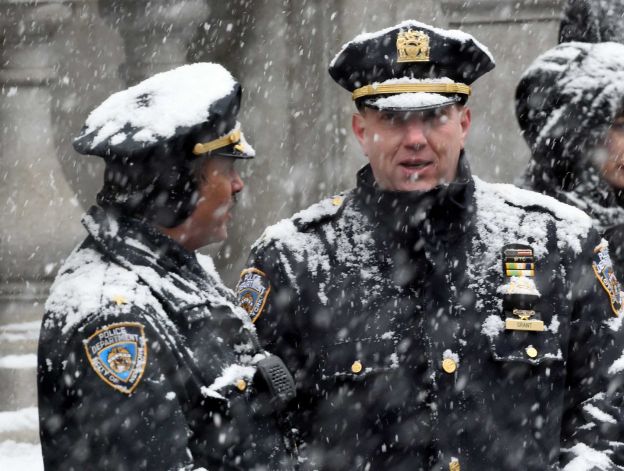Why Not Write A Law Requiring People to Lock Their Doors?
In the northeastern United States, it has thus far been a particularly brutal winter. It has gotten so bad that this past week, some schools in Ohio (as well as across the region) were closed on all five regular school days because of safety concerns. It is times like these that we are all thankful for recent innovations in automobiles that allow us to persevere in the harshest of temperatures.
However, Ohio police have begun enforcing a 2004 law that prohibits leaving a vehicle unattended without first turning off the engine and taking the keys out the ignition. Therefore, officers have begun issuing $150 tickets to those who attempt to warm up their cars by turning on their engines and leaving the car running before getting onto the road. On top of the fine, citizens can be charged with a minor misdemeanor.
Once again, this is a case of a law which has good intentions but negative effects. The law was apparently written as a way of preventing vehicles from being stolen, as well as preventing kidnapping of children and pets who could be left inside a running car. But these reasons neglect to consider any outlying circumstances, and furthermore reassert the government as a paternal force whose responsibility it is to make sure we are acting responsibly.
Of course it is unwise to leave one’s car running in a remote area without supervision. But is this law really going to prevent Ohioans from doing so? Furthermore, if the car is indeed hijacked, isn’t that a lesson enough in itself? What good does it do to give that victim, even if such victimization is a result of his or her own poor judgment, a fine and a misdemeanor charge?
As far as the potential kidnapping of children and pets, this is also a very valid concern. However, once again, does government really need to demand that people take such careful action? If one is the kind of parent or pet-owner who is careless enough to act this way, is another law going to do anything to change his or her behavior, particularly when more serious and legitimate laws (those concerning parental negligence, for example) are so much more fitting, and would likely cover this jurisdiction anyway?
Particularly fascinating among all of this is the response by Middletown Police Department Chief Rodney Muterspaw, who stated that the law is rarely enforced and that while laws may be “black and white on paper,” officers must use “common sense” and be “reasonable” in their enforcement. However, this revealing statement brings to light all that is wrong with over-criminalization: with so many laws on the books, officers are put in full discretion of how and when to enforce them. While uniformity is always desired, it is nearly impossible to attain. Therefore, because government grants so much power to police by making laws regulating almost every type of human behavior, officers are left to select which rule-breakers to punish.
Ohio resident Mary Ann Wilson‘s reaction to this law is telling, as she says that this is yet another “ridiculous law” designed for no reason other than to create extra income for police stations. Her attitude reflects a general consensus among Americans anytime incidents like these come to light: as more laws get written, whether on the federal, state or local level, these laws seemingly become more frivolous and less intent upon defending the rights of liberties of Americans. Additionally, these laws dilute police resources as they attempt to enforce those very few laws which actually are designed to protect citizens.
As libertarians, we are always prepared to fight such egregious and unnecessary laws in order to maintain human dignity and personal freedoms. If we do not do our best to rebel when such unjust assertions of authority are made, we will all be left out in the cold.




